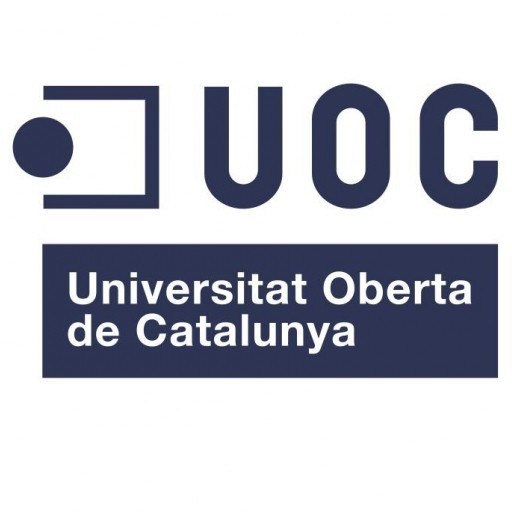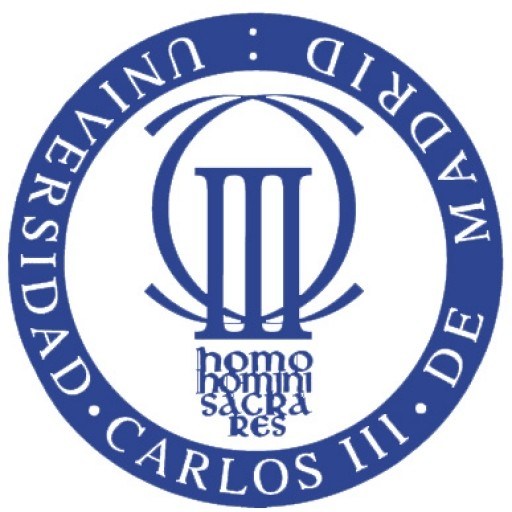Photos of university / #uabbarcelona
The Master's Degree in Computer Vision at the Autonomous University of Barcelona is a comprehensive and advanced program designed to equip students with the theoretical knowledge and practical skills necessary to thrive in the rapidly evolving field of computer vision. This program aims to prepare graduates to develop algorithms and systems capable of interpreting, analyzing, and understanding visual information from the world, which is fundamental to numerous applications such as robotics, autonomous vehicles, medical imaging, augmented reality, and image processing.
Throughout the course, students will delve into a diverse curriculum that covers core topics including image analysis, pattern recognition, machine learning, deep learning, and artificial intelligence techniques applied specifically to visual data. The program emphasizes both foundational theories and practical implementation, allowing students to gain hands-on experience through laboratories, projects, and collaboration with industry partners. Collaboration with research centers and participation in cutting-edge projects ensure students stay at the forefront of technological innovations in computer vision.
The program is designed for students with a background in computer science, engineering, or related fields who seek to specialize further in computer vision. It offers a balanced blend of theoretical lectures, practical workshops, and research activities, fostering critical thinking, problem-solving abilities, and technical expertise. The faculty comprises experts in computer vision, machine learning, and artificial intelligence, providing students with high-quality mentorship and guidance throughout their studies.
Graduates of the Master's Degree in Computer Vision will be well-prepared for careers in research and development within technology companies, startups, and research institutions. They will also be equipped to pursue doctoral studies or specialized training in the field. The program’s interdisciplinary approach ensures that students gain a comprehensive understanding of both the theoretical frameworks and real-world applications of computer vision technologies, making them valuable contributors to technological advancements and innovative solutions across various sectors.
Learning outcomes include mastering advanced image processing techniques, developing expertise in neural network architectures, understanding the ethical implications of visual data analysis, and acquiring the ability to design and optimize computer vision systems for complex applications. Upon completion of the program, students will be capable of applying their knowledge to solve practical problems involving visual data, harnessing the power of modern AI algorithms, and contributing to the development of intelligent systems that can perceive and interpret the visual world.
The Autonomous University of Barcelona provides state-of-the-art laboratories and research facilities, creating an ideal environment for students to experiment with the latest technologies and tools in computer vision. The program also encourages international mobility and collaboration, fostering a global perspective and opening doors to diverse professional opportunities. Whether you aim to contribute to academic research, industrial innovation, or societal applications, the Master's Degree in Computer Vision offers an excellent platform to advance your career and make a meaningful impact in this exciting and dynamic field.
The Master’s Degree in Computer Vision at the Autonomous University of Barcelona offers an in-depth and comprehensive curriculum designed to equip students with advanced knowledge and practical skills in the field of computer vision, a rapidly evolving branch of artificial intelligence focused on enabling machines to interpret and process visual information from the world. The program is structured to provide a solid theoretical foundation in image processing, pattern recognition, machine learning, and deep learning techniques, alongside hands-on experience with real-world applications across various industries such as healthcare, automotive, security, and entertainment.
Throughout the program, students will explore core topics including image analysis, 3D vision, object detection and recognition, motion analysis, and scene understanding. The curriculum emphasizes both the mathematical principles underpinning computer vision algorithms and their implementation using state-of-the-art programming tools and frameworks. Students will engage in rigorous coursework covering topics such as computer graphics, neural networks, distributed computing, and robotics applications related to vision systems. Moreover, the program integrates laboratory sessions and project work, enabling learners to apply theoretical concepts to practical scenarios, fostering innovation and problem-solving capabilities.
Students will have opportunities to participate in cutting-edge research projects supervised by faculty members renowned in the field. The program also includes seminars, workshops, and collaborations with industry partners, providing valuable networking opportunities and insights into current trends and future developments in computer vision technology. Graduates of this Master’s program will be well-prepared for careers in research and development, data analysis, software engineering, and technology innovation within intelligent systems, autonomous vehicles, biomedical imaging, surveillance, and multimedia processing. Overall, this program aims to develop highly skilled professionals capable of advancing the field of computer vision and contributing to technological innovation in a competitive worldwide landscape.
The Bachelor’s Degree in Computer Vision at the Autonomous University of Barcelona requires applicants to demonstrate a strong foundational knowledge in mathematics, programming, and digital systems. Prospective students are expected to have completed secondary education with excellence in subjects such as mathematics, physics, and computer science. Admission may require the submission of academic transcripts, proof of language proficiency in Catalan, Spanish, or English, and in some cases, an interview or entrance exam to assess technical aptitude and motivation for the field. The curriculum is designed to provide a comprehensive understanding of computer vision principles, including image processing, pattern recognition, machine learning, and artificial intelligence. Students will engage in coursework that covers the theoretical and practical aspects of image analysis, 3D reconstruction, object detection, and scene understanding. To facilitate hands-on learning, the program includes laboratory sessions, programming projects, and collaborations with industry partners. Prerequisite knowledge in programming languages such as Python, C++, and MATLAB is highly recommended, and students are encouraged to have prior experience with algorithms and data structures. Throughout the program, students must complete a series of core courses, electives, and a final project or thesis that demonstrates their ability to apply computer vision techniques to real-world problems. In addition, students are expected to develop skills in statistical analysis, software development, and teamwork. Students who successfully complete all curricular requirements are awarded the degree, which prepares them for careers in fields such as autonomous vehicles, robotics, medical imaging, multimedia, and surveillance. The university promotes continuous assessment through exams, assignments, presentations, and project evaluations to ensure comprehensive knowledge acquisition and skill development. Overall, the program aims to produce graduates who are capable of innovating and advancing the field of computer vision through research, development, and application of emerging technologies in diverse industries.
The financing of the Computer Vision program at the Autonomous University of Barcelona is designed to accommodate a diverse range of students through multiple funding options. Tuition fees for international students are established annually and are publicly available on the university’s official website. These fees are structured to support quality education while maintaining affordability, with specific rates corresponding to the student’s residency status. The university offers various scholarships and grants aimed at both domestic and international students, which can significantly offset tuition costs. These financial aid options are based on academic merit, economic need, or specific criteria such as research interests. Additionally, students may access financial aid provided by national and regional government programs aimed at promoting higher education participation. Many students utilize student loans, available through various financial institutions, to cover their educational expenses, with repayment plans designed to be manageable post-graduation. The university also encourages part-time employment opportunities for students within campus institutions and through external collaborations, enabling students to finance their studies while gaining professional experience. For students undertaking research components or specialized projects, there may be additional funding or research grants available, which are often awarded through competitive application processes. International students are advised to explore bilateral agreements between their home country and Spain for scholarships or funding schemes that support international mobility and academic pursuit. Overall, the financial landscape for the Computer Vision program at the Autonomous University of Barcelona reflects a comprehensive support system aimed at ensuring that financial barriers do not hinder access to education.
The Autonomous University of Barcelona offers a specialized program in Computer Vision as part of its advanced studies in engineering and technology. This programme aims to provide students with a comprehensive understanding of the fundamental concepts and contemporary applications of computer vision. The curriculum typically covers core areas such as image processing, pattern recognition, machine learning, and artificial intelligence, with a focus on developing practical skills for real-world problems. Students are introduced to various algorithms and techniques used for image analysis, object detection, recognition, and scene understanding. The program often includes coursework on deep learning methodologies, enabling learners to implement neural networks for tasks like facial recognition, autonomous vehicle navigation, medical image analysis, and surveillance systems.
The program is designed to be interdisciplinary, integrating knowledge from computer science, engineering, mathematics, and cognitive sciences to foster a well-rounded approach to visual data interpretation. It prepares students for careers in research, development, and innovation within the fields of robotics, automation, and multimedia systems. Hands-on projects, laboratory work, and collaborations with industry partners are typical features that enhance practical experience. Students may also have opportunities to participate in internships, workshops, and seminars that keep them abreast of emerging trends and technologies.
Graduates of this program are equipped with skills in programming languages such as Python, C++, and MATLAB, and are familiar with relevant tools and frameworks like OpenCV, TensorFlow, and PyTorch. The degree aims to produce professionals capable of designing and implementing sophisticated computer vision systems, contributing to advancements in areas such as autonomous driving, smart surveillance, augmented reality, and healthcare diagnostics. The Autonomous University of Barcelona emphasizes a research-oriented approach, encouraging students to undertake innovative projects and contribute to academic publications or patent development.
The program typically spans one or two years, depending on the structure and whether it is pursued as a master's or postgraduate diploma. Admission requirements generally include a background in computer science, engineering, or related fields, with proficiency in mathematics and programming. Graduates are highly sought after by technology companies, research institutions, and governmental agencies working on cutting-edge visual computing challenges. Overall, the program aims to develop technically skilled professionals capable of tackling complex visual perception tasks and advancing the state of the art in computer vision technologies.




